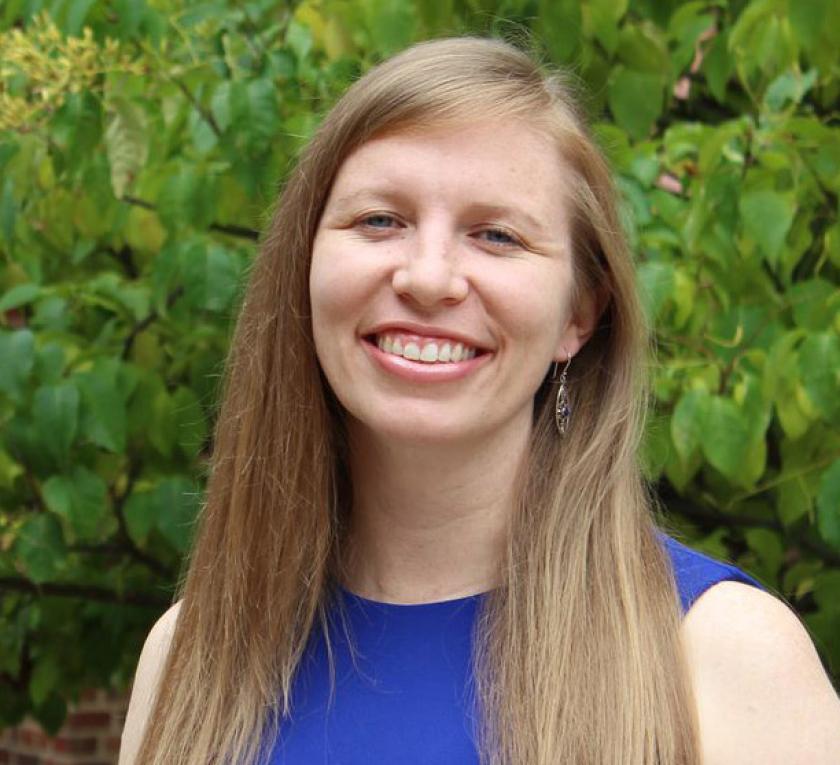
Shannon O'Rourke Kasali's involvement with libraries started before she arrived at Illinois for her MS/LIS degree. While working in the Democratic Republic of Congo, she witnessed the lack of accessibility to books. In response, O'Rourke Kasali crowd-funded $27,000 to purchase 27,000 books, leading to the creation of Books for Congo. Since 2016, the organization has established 16 libraries in two provinces in the country, distributing over 56,000 books and training 30 librarians.
"Based on prior experience I had in Senegal, I knew a way to get books, so I decided to do my part to support some local organizations in their dream to set up libraries," said O'Rourke Kasali. "In addition, Books for Congo has hosted writing workshops in collaboration with a publishing house to promote the publication of local stories."
O'Rourke Kasali holds a BA in political science and international studies from Illinois Wesleyan University, an MA in international development from The George Washington University, and a certificate in peace and conflict studies from Chulalongkorn University. She decided to pursue her MS/LIS with the goal of learning more in order to further develop Books for Congo.
Last year, O'Rourke Kasali worked as an apprentice at The Urbana Free Library and as a graduate hourly at the Mortenson Center for International Library Programs. She is currently the iSchool student leadership and engagement graduate assistant and serves on the Progressive Librarians Guild and the ALA Student Chapter's International Committee.
"I am most interested in the role that libraries play in community development. I am also conducting research on the role of libraries and library work in conflict and post-conflict settings, which is particularly interesting, stemming from my work in the Democratic Republic of Congo," she said.
O'Rourke Kasali recently served as a guest author for the IFLA Library Services to People with Special Needs newsletter. In her article, she discussed how Books for Congo supported their partner libraries in adapting to continue to provide services during COVID-19.
"I would like to continue to give as much time as possible to Books for Congo because the organization is doing incredibly interesting, needed, and really fun work, and the opportunities are limitless," she said. "It's really an honor to be able to contribute to communities and a country that I have made my home."